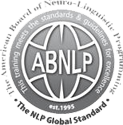

Treacle International NLP Consultancy and Training
Treacle Cottage, Treacle Hill, UK
Website Design by Happy Websites











What is NLP?
How long of an answer were you wanting?
I've got lots of time... I want the long answer
Not too long, not too short... I want the normal answer
Just give it to me quickly... I want the short answer
What is CBT?
Key Concepts in Cognitive-
The cognitive component in the cognitive-
Cognitive interventions use a style of questioning to probe for peoples’ meanings and use this to stimulate alternative viewpoints or ideas. This is called ‘guided discovery’, and involves exploring and reflecting on the style of reasoning and thinking, and possibilities to think differently and more helpfully. On the basis of these alternatives people carry out behavioural experiments to test out the accuracy of these alternatives, and thus adopt new ways of perceiving and acting. Overall the intention is to move away from more extreme and unhelpful ways of seeing things to more helpful and balanced conclusions.
The behavioural component in the cognitive-
Importantly the cognitive and behavioural psychotherapies aim to directly target
distressing symptoms, reduce distress, re-
What is TA?
Transactional Analysis
T.A. is a theory of personality and a systemic psychotherapy for personal growth and personal change. “International Transactional Analysis Association”
T.A. is all of this and much more. Among Psychological approaches, transactional analysis is outstanding in the depth of its theory and the wide variety of it’s applications:
- Theory of personality, using the 3 part model known as ego-
states. - Theory of child development, how our present life patterns originated in childhood.
- It provides a method of therapy for use with individuals, groups, couples and families.
Outside the therapeutic field:
T.A. is used in educational settings.
T.A. is a powerful tool in management and communications training and in organizational analysis.
T.A. is used in many other applications, for example; social workers, the police and probation authorities.
T.A. can be used in any field where there is a need for understanding of individuals, relationships and clear communication.
The Philosophy of TA
T.A. rests upon certain philosophical presuppositions.
These are statements about people, life and the objectives of change.
- People are O.K.
- Everyone has the capacity to think
- People decide their own destiny, and these decisions can be changed, if you want!
Neuro Linguistic Programming (NLP) was created in the early 1970s by Richard Bandler, a computer scientist and Gestalt therapist, and Dr John Grinder, a linguist and therapist....
Hang on... you might not be interested in all this...





